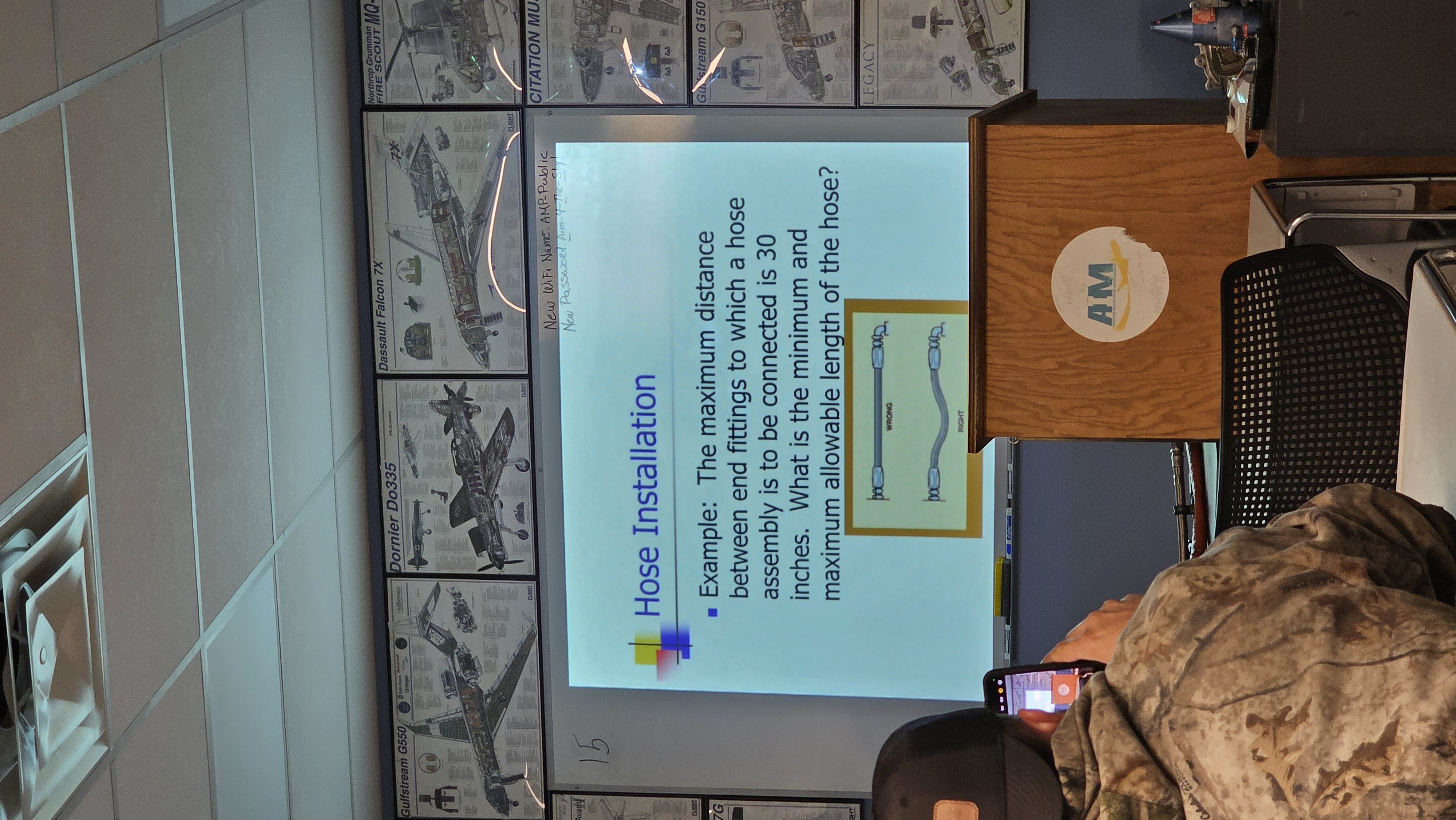What is the minimum and maximum allowable length of the hose if the maximum distance between end fittings is 30 inches?

Understand the Problem
The question is asking for the minimum and maximum allowable length of a hose assembly that connects two end fittings with a maximum distance of 30 inches between them. It requires an understanding of hose installation standards.
Answer
Minimum allowable length: $32$ inches; Maximum allowable length: $33$ inches.
Answer for screen readers
Minimum allowable length: $32$ inches
Maximum allowable length: $33$ inches
Steps to Solve
-
Identify Maximum Distance Between Fittings The maximum distance given between the end fittings is 30 inches.
-
Determine Allowable Lengths Typically, the minimum allowable length of a hose should be slightly longer than the distance between the fittings to account for any bends and fittings.
-
Calculate Minimum Length The minimum allowable length can be taken to be approximately equal to the distance between fittings. For best practices, you may add a small margin, for example: $$ \text{Minimum Length} = 30 \text{ inches} + X $$ where ( X ) is a small amount for flexibility. For example, if we choose 2 inches, then: $$ \text{Minimum Length} = 30 + 2 = 32 \text{ inches} $$
-
Calculate Maximum Length The maximum allowable length of a hose is generally determined by the maximum operational conditions or specifications from the manufacturer, which can be significantly longer than the distance between fittings. However, a common engineering practice is to allow about 10% more than the maximum distance, thus: $$ \text{Maximum Length} = 30 \text{ inches} \times 1.1 = 33 \text{ inches} $$
-
Conclusion of Lengths So, the minimum allowable length based on example and standard practices could be 32 inches, and the maximum could be construed to be approximately 33 inches for this scenario.
Minimum allowable length: $32$ inches
Maximum allowable length: $33$ inches
More Information
The minimum and maximum lengths of hose depend on installation practices, and adjustments may be advised according to specific application requirements.
Tips
- Not accounting for the flexibility required in hose assemblies leading to underestimating the minimum length.
- Overlooking manufacturer specifications for maximum length which might restrict the safety or functionality of the assembly.
AI-generated content may contain errors. Please verify critical information